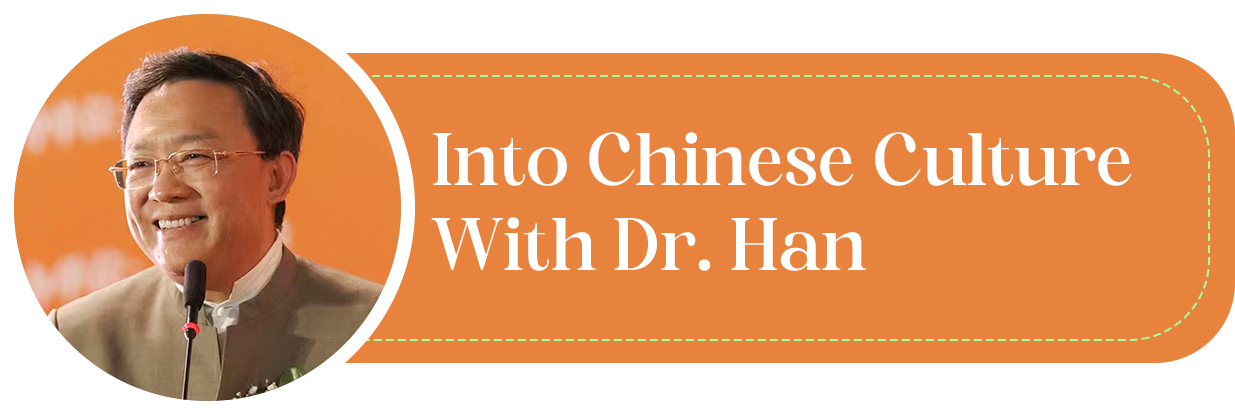All humans have compassion — Mencius and his philosophy on kindness (5)
Writer: Han Wangxi | Editor: Zhang Chanwen | From: Shenzhen Daily

We continue on Mencius’ theory of “four minds.” His thoughts parallel Confucius’, which emphasize benevolence, reflecting the quote “A benevolent man loves others.” “Lunyu” (“Analects of Confucius”) recorded Confucius’ teachings on filial piety.
Zaiwo, one of Confucius’ students, asked about the three-year mourning period and said, “Master, we Confucians should practice rituals and music. If a gentleman refrains from practicing ritual for three years, the rites will surely fall into ruin; if he refrains from music for three years, this will surely be disastrous for music. How is that possible to mourn for three years when my relatives pass away?” Confucius asked, “How long is suitable to you?” Zaiwo replied, “One year is enough.”
Confucius questioned, “When the gentleman is in mourning, he gets no pleasure from eating sweet foods, finds no joy in listening to music and feels no comfort in his place of dwelling. Would you feel comfortable during your mourning period, eating your sweet rice and wearing your brocade gowns?” Upon receiving Zaiwo’s positive answer, Confucius, alas, sighed, “This shows how lacking in goodness Zaiwo is! A child is completely dependent upon the care of his parents for the first three years of his life — this is why the three-year mourning period is the common practice throughout the world. Didn’t Zaiwo receive three years of care from his parents?”
“The feeling of shame and dislike is the principle of righteousness.” One must know whether it could be done well or not, and whether it should be done or not. If you did well, you would be happy, but if you didn’t do well, you would feel ashamed. If a person says and does the wrong things without a sense of shame, it shows a lack of a self-examining heart, a self-awareness and moral consciousness.
“The feeling of modesty and complaisance is the mind of propriety.” Propriety here means respecting others. Human owns subject-oriented thinking, or to put it in Mencius’s term, “superiors and inferiors will try to snatch the profit from the other.” Our minds are easily obscured and affected, prompting us to see, eat, smell and listen to everything attractive. Without mind of propriety, situation will become what Heraclitus describes as “the human heart is an abyss.”
Confucianism is keenly aware of this and have always stressed that people should have a mind of propriety, a mind of respect and a mind of politeness. The most important thing is the mind of loving others, by doing which, one will be respected, otherwise be disgraced. People with respect will not insult others, people with self-restraint will not snatch people, and a person talking and doing things like a spring breeze must be very respectful, allowing the other party to be respected. In Chinese culture, these are called modest gentlemen, the one described in “Zhou Yi” (or “The Book of Changes”) as “the gentleman who adds humility to humility, even the great stream may be crossed with this.”
“The feeling of right and wrong is the mind of knowledge,” meaning one shall possess judgements upon what is just and unjust. Confucius said, “When walking with two other people, I will always find a teacher among them. I will pick out the good points of the one and learn them, and the bad points of the other and correct them in myself.”
The mind of right and wrong, in Mencius’ view, is also the mind of good and evil. Here we shall decipher deeper to not only see the truth, but also the ethics, or the nature of the mind. In addition, Confucius said, “See goodness and strive for it urgently, as if you will never be able to catch up; see badness and recoil as if you are scalded by hot water.” If seeing something good, one should learn it as soon as possible, for fear that it will be too late to learn it well. Whereas, when seeing something bad, one should reflect himself right away like being burnt by and instantly cleared from hot liquid. This is the inner awakening, reflection, contemplation and introspection.
A person with the mind of commiseration, the mind of shame and dislike, the mind of modesty and complaisance, and the mind of right and wrong can be defined as a human, otherwise a beast, hence the view of human-beast difference from Confucianism.
(The author is a cultural scholar.)
(Translated by Chen Siqi)